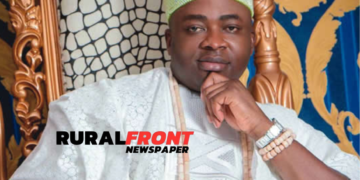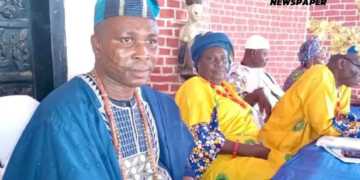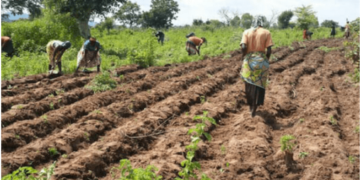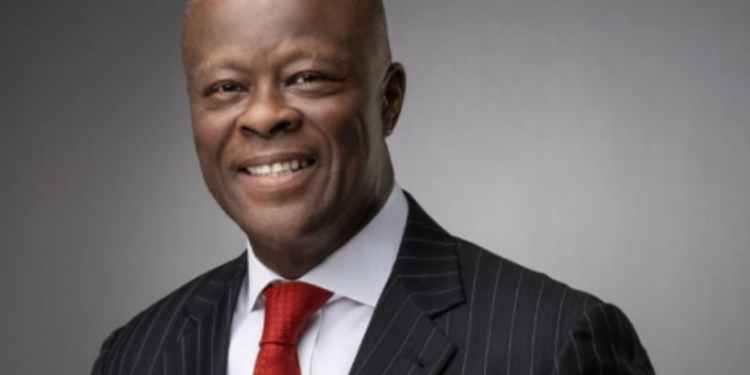The Minister of Finance and Coordinating Minister of the Economy, Wale Edun, has declared that Nigeria’s economy has been revamped, citing positive trends in key economic indicators.
Edun made the declaration while briefing State House correspondents after the Federal Executive Council (FEC) meeting presided over by President Bola Tinubu on Tuesday.
The Minister, who said he presented a memorandum to the Council on how to strengthen the Nigeria Customs Service (NCS), explained the volatile indices that have beclouded the true state of the economy, adding that the administration had straightened out practices that had hitherto burdened the economy.
He disclosed that the country’s total debt stock in US dollar terms decreased by 15% in the first quarter of 2024, a development he described as “very positive.”
However, when factoring in exchange rate movements and domestic debt issuance, the total debt stock in Naira terms increased by 25%.
The Minister emphasized that the government’s revenue collection has been robust, a development he praised on technology-driven initiatives, and that expenditure controls are also being implemented.
He noted that the federal government has not relied on ways and means to fund its operations, a departure from past practices.
Edun highlighted that the current administration inherited a legacy of N22.7 trillion in outstanding ways and means, which are being audited and securitized, explaining further that despite this, the current ways and means deficit stands at N3.4 trillion, which is offset by operating surpluses from revenue-generating agencies.
According to him, “I gave the Council a verbal briefing that I’m giving now, and I will start by saying that when we interrogate the figures over the first quarter of this year, starting end of December and end of March.
If we want to be positive, all we will say is that the glass is half full, we are halfway there. If not, we can be negative and try and say the glass is half empty.
Why do I say this? The debt stock, the total debt stock of Nigeria in US dollar terms fell by 15%. That is very positive, any rating agency, any creditor, any investor looking at that will see it as a positive move.
We’re a country that has petro-dollars. We have the ability to earn in dollars. So it’s highly relevant, that we look at what is our exposure in dollar terms.

On the other hand, given the exchange rate movements, even though there was like an N8 trillion increase in actual debt issuance, the total debt stock, when you count domestic debt which;
…as I said there was an increase in issuance when you count the total external debt and domestic debt in Naira terms, it has increased by 25%.
That’s mainly due to the foreign exchange movement, which can change tomorrow, as we know. Linked to that is the all-important question of the government’s capacity to pay its way, debt, credit is all about the revenue to service and of course, to use those funds properly, judiciously, accountably and in a way that gives positive returns.
I can say quite categorically that under President Bola Tinubu, the federal government does not rely on ways and means in order to fund itself. At no time have we gone to Mr. President and requested permission to seek funding from the Central Bank to pay anybody, be it external debt service, be it share capital cash calls, or any other of the liabilities that the government has.
As with all agencies, we are focused on ensuring that the revenue that is due to the federal government is collected robustly, using technology avoiding the blockages, which manual processing can cause and it has led to a very robust revenue effort and likewise, we are implementing expenditure controls, also very ably empowered by technology.
So within that context, what we have is that we had a legacy, Mr. President inherited a legacy of N22.7 trillion in outstanding ways and means, which have been securitized on the eve of the entry of President Tinubu’s administration.
Naturally, we are auditing, we’re doing a forensic audit and interrogating that figure, because it’s a liability which we have to pay interest on, so any deficits that you might see, to the ways and means, to the consolidated revenue account, maybe automatic debits on a figure that is still being interrogated, but as a matter of fact, the current ways and means deficit is N3.4 trillion.
As I said, we collect the operating surpluses of revenue-generating agencies by law under the Fiscal Responsibility Act and other legal guidelines and when we look at how much is outstanding, and how much is owed, we are actually positive.
The amount that is owed and that we are claiming far exceeds the N3.4 trillion in Ways and Means and as I’ve said before, we do not rely on ways and means to pay salaries, we don’t rely on it to pay external debt servicing or other obligations. That is the situation, the finances of Nigeria have been revamped.
In addition to these financial improvements, the Minister also highlighted several other key areas where the administration has made significant strides. For instance, the government has been actively working on improving the ease of doing business in Nigeria. This includes streamlining processes, reducing bureaucratic red tape, and implementing policies that encourage both local and foreign investments. These efforts are aimed at creating a more conducive environment for businesses to thrive, ultimately leading to job creation and economic growth.
Furthermore, the Minister pointed out that the government has been investing heavily in infrastructure development. This includes the construction and rehabilitation of roads, bridges, and other critical infrastructure projects across the country. These projects are not only creating jobs but also improving connectivity and accessibility, which are essential for economic activities.
The administration has also been focusing on the agricultural sector, recognizing its potential to drive economic growth and ensure food security. Various initiatives have been launched to support farmers, including access to credit, provision of modern farming equipment, and training programs. These efforts are aimed at boosting agricultural productivity and making Nigeria self-sufficient in food production.
In the area of education, the government has been working on improving the quality of education and making it more accessible to all Nigerians. This includes the construction of new schools, renovation of existing ones, and the provision of learning materials. The aim is to equip the younger generation with the skills and knowledge they need to contribute to the country’s development.
Healthcare is another critical area where the government has been making significant investments. The Minister mentioned that several new hospitals and healthcare centers have been built, and existing ones have been upgraded. These efforts are aimed at improving healthcare delivery and ensuring that all Nigerians have access to quality healthcare services.
The Minister also touched on the importance of technology and innovation in driving economic growth. He mentioned that the government has been supporting tech startups and encouraging innovation through various initiatives. This includes providing funding, creating tech hubs, and implementing policies that support the growth of the tech industry. These efforts are aimed at positioning Nigeria as a hub for technology and innovation in Africa.
In conclusion, the Minister emphasized that while there are still challenges to be addressed, the positive trends in key economic indicators and the various initiatives being implemented by the government are clear signs that Nigeria’s economy is on the right track. He expressed optimism that with continued efforts and the support of all stakeholders, the country will achieve sustainable economic growth and development.
























